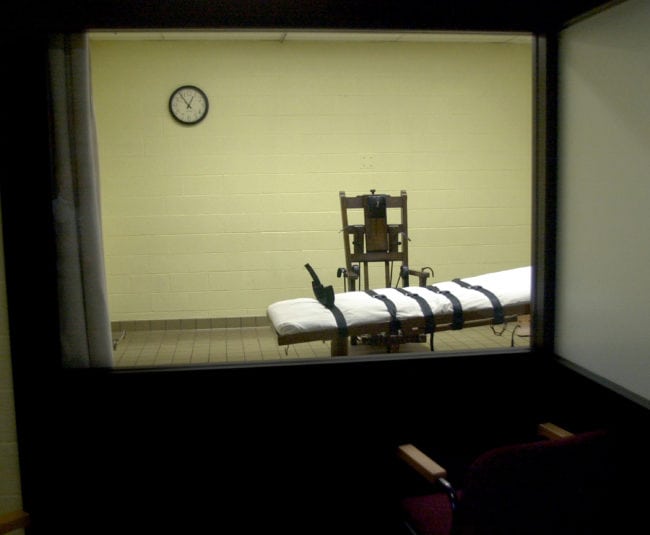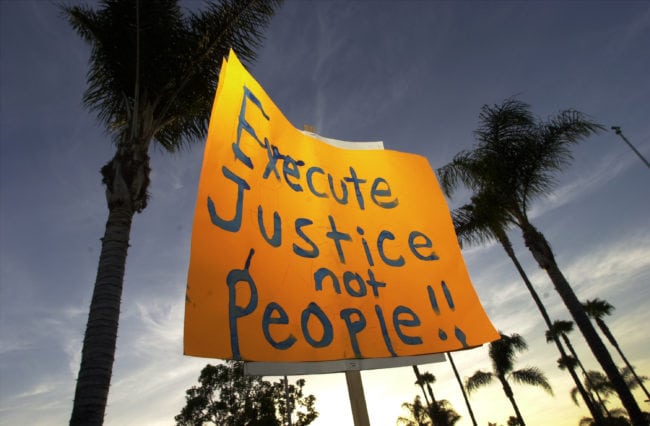Jurors sentence a gay man to death because ‘he would enjoy life in a male prison’

He killed the man in 2011 (Creative Commons)
A man who launched an appeal to have his sentence reduced from death to life in prison due to allegedly homophobic jurors has lost.
In 1993, Charles Rhines was sentenced to death by a jury after he bound and stabbed a man to death while robbing a doughnut shop in South Dakota.
In May, Rhines’ lawyers opened an appeal asking for a reduction in his sentence to life without parole due to alleged homophobia shown by the jury during the sentencing.
However, on Tuesday, the Supreme Court rejected the appeal, meaning that the now 60-year-old will now face execution.

Charles Rhines will now be executed (Mike Simons/Getty Images)
The Supreme Court gave no reason why they had rejected Rhines’ appeal, which was filed due to a 2017 ruling in the Colorado Supreme Court.
This ruling, Peña-Rodriguez v. Colorado, mandated that states must consider jury bias on the basis of race, which Rhines’ lawyers argued could also apply to anti-LGBT bias based on sexual orientation or gender identity.
During the appeal, Rhines’ lawyers provided evidence that his sexual orientation had been discussed at length by jurors in 1993.

Rhines has been in prison for 25 years (Creative Commons)
During the original sentencing, the jurors asked the sentencing judge a series of questions, including whether Rhines would be allowed to “mix with the general inmate population,” “create a group of followers or admirers,” or “brag about his crime to other inmates, especially new and or young men.”
The jurors also asked whether Rhines would be allowed to “marry or have conjugal visits,” or “have a cellmate.”
In their petition to the Court, Rhines’ lawyers said that since the original trial, three jurors have come forward to explicitly state that the jury sentenced the 60-year-old to death based on his sexual orientation.

Prison (Creative Commons)
One juror stated that several jurors “knew that [Rhines] was a homosexual and thought that he shouldn’t be able to spend his life with men in prison.”
Another juror recounted one fellow juror saying during the sentencing: “if he’s gay we’d be sending him where he wants to go.”
Writing in the New York Times on Tuesday, American Civil Liberties Union staff lawyer Ria Tabacco Mar condemned the decision of the court.

LGBT rights and anti-death penalty campaigners have criticised the decision (David McNew/Getty Images)
Tabacco Mar wrote: “while bias in the criminal justice system is not always explicit, it was in Mr. Rhines’s case.
“That makes the court’s decision not to step in even more alarming.
“Sadly, the court will almost certainly be presented with more requests to review convictions or sentences poisoned by anti-LGBT bias.
“It should take the next opportunity to correct this mistake and recognize that prejudice against people who are LGBT should play no role in America’s criminal justice system.”

